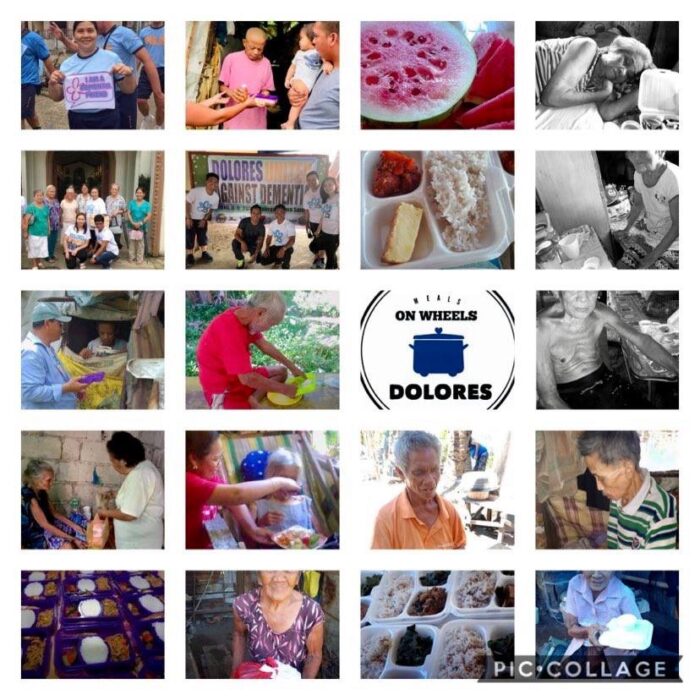Margaret Baron is a Resuscitation Officer at Cambridge University Hospitals. In 2018, Margaret returned to her native Philippines to support dementia awareness and establish a Meals on Wheels service for the vulnerable and disabled in the community. Margaret has been awarded two grants from CGHP to assist and facilitate her volunteer work in the Philippines. Her inspiring story is a clarion call, which seeks to encourage fellow healthcare staff to embrace global health.
We do not fully realise the extent to which we as healthcare professionals, make a difference to people’s lives. As a nurse, everyday I strive to embody our core value: altruism – a selfless concern for others. In my opinion, humanity is naturally kind, it is a muscle memory, it is a culture. Too often our hospital roles become our everything, but we must remember that the world is our oyster!
When the opportunity to volunteer with support from Cambridge Global Health Partnerships presented itself, it struck me that there are people and organisations waiting in the wings, ready to fuel one’s enthusiasm and help create change and improve lives beyond our own bubble.
I originate from the Philippines. In our small town of Dolores, Eastern Samar, our group is celebrating the 2-year anniversary of the Meals on Wheels Service which began in June 2018. Here in the UK, this is a well-established state subsidised programme that is designed to support the vulnerable elderly or the disabled. In the Philippines, or at least in our county, Meals on Wheels Dolores is a pioneering project.

The project has overcome so many adversities. Resources are scarce. Daily food sources are strained in the majority of households, and people cannot afford to work unpaid. As a result, few volunteers could sustain such a project. But I thought, if we work hard we can get through it. Someone needs to see a glimmer of hope, jump on it and make it great. With the support of the community, this is what we did.
Every time I visit my home in the Philippines for holidays, I think about doing something for the local community. In 2018, I worked with the locals to conduct an enormous advocacy project on dementia. In low- and middle-income countries, one of the contributing factors in developing dementia is poor nutrition. We did a memory walk, inspired by Alzheimer’s Society UK. This not only raised funds, but also lead to the establishment of Meals on Wheels. The mission and vision of Meals on Wheels is simple; to bring together the community with whatever spare produce they have growing in their gardens, to cook nutritious meals for beneficiaries. We managed to do daily lunches for our vulnerable elderly for 3 months, which eventually became a weekly delivery. It was a struggle to keep up, especially facing financial pressures and no government assistance. But everyone kept pitching in. In the face of adversity, as typhoons arrived, then the pandemic, everyone went above and beyond for their vulnerable neighbours. I was amazed by the generosity of the people. Everyone, irrelevant of the money in their pockets, has something to give.
Today, we call on the younger members of the community to volunteer with Meals on Wheels Dolores. If we teach everyone, especially the younger generation about being a good neighbor to the vulnerable, our community will become a resilient oasis for the community to enjoy and grow old in. Here, nobody will fear the uncertainties of ageing.

To my fellow nurses, especially those from diaspora communities living in the UK, if there is an opportunity to do something good with the support of organisations such as CGHP, why wouldn’t we? The feeling is indescribable and self-actualising. I wouldn’t trade a luxurious holiday in a fancy destination for what I did two years ago. I planted something, and my community is reaping the harvest.
I am so proud of the Meals on Wheels Service Dolores for overcoming a stream of adversities. Kindness has been our constant and the gift of kindness costs nothing, so let us spread it everywhere.
Written by Margaret Baron
Return to case studies
